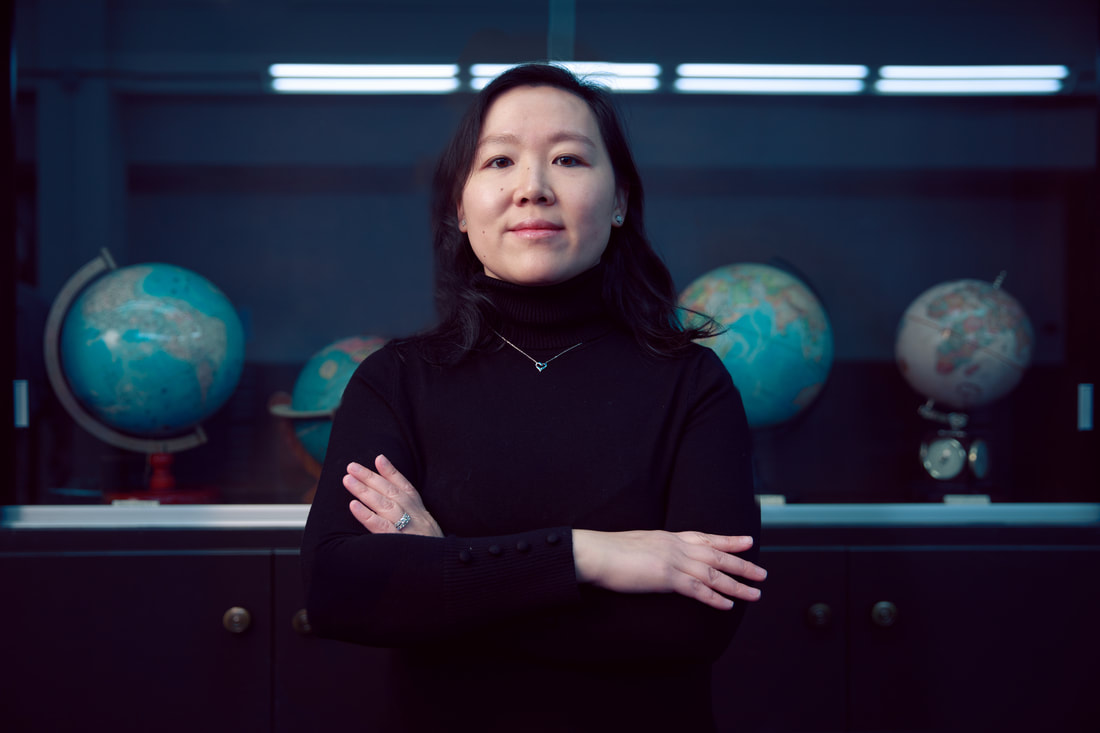|
Risk perceptions have been intensively studied because they are believed to induce behavior change, which would have consequences in the world. Now, a group of researchers from multiple disciplines have taken this idea one step further by linking human behavior model with climate model. Their study has just been published on Nature Climate Change. It is exciting to see this kind of integrative approach in the climate research field. The complexity of climate change really requires concerted efforts of scientists from a wide range of disciplines.
1 Comment
1/14/2018 0 Comments What I have been reading Leonardo Da Vinci by Walter Issacson Da Vinci is the ultimate learning machine in human history. In his eyes, the world is full of secrets that await to be revealed and riddles that need to be solved. Driven by passionate curiosity and armed with acute observation, he beautifully integrates arts and sciences in his paintings and designs. His seven-thousand-page notebook is equivalent to a museum, full of his thoughts, imagination, fantasies, and creation. Anyone with intellectual curiosity should read how this multi-disciplinary master lived a full life of mind.
Zero to One by Peter Thiel Thiel writes in the Preface, "The next Bill Gates will not build an operating system. The next Larry Page or Sergey Brin won't make a search engine. And the next Mark Zuckerberg won't create a social network. If you are copying these guys, your aren't learning from them." Many view this book as a business book, serving as a guide for aspirational entrepreneurs. I see this book as an educational one. In an age when competition is dearly valued in the education system, when young children are constantly evaluated by numeric metrics, not many participants bother to step back and weigh the pros and cons of competition. To stand out from a large crowd, we naturally assume, must be through cruel and fierce competition. Stories of the most successful people in many fields suggest that the path from 0 to 1 is much easier than that from 1 to n. When Artificial Intelligence is forcefully driving the world by surpassing humans in repetitive and computation-intensive tasks, creativity and innovation cannot be more essential to our survival. The AI Revolution: The Road to Superintelligence by Tim Urban While many are aware of global climate change and nuclear war being potential existential risks to the humanity, serious concerns for Artificial Intelligence are only shared within a small circle of intellectual elites including Stephen Hawking, Elon Musk, Bill Gates, Nick Bostrom among others. The three stages of AI development include Artificial Narrow Intelligence (ANI), Artificial General Intelligence (AGI), and Artificial Super Intelligence (ASI). We are currently at the first stage ANI. ANI has quietly and forcefully become part of modern life for many citizens in the developed world. Every time when you watch a movie, Netflix would recommend something with the saying "you may also like this..." Every time when you order a book on Amazon, you will see "Customers who bought this also bought..." All these are done by algorithms, ANI. ANI has become so good at what it is specifically programmed to do that it can beat the human world chess and go champions. Given the exponential growth rate of technology, it may well be a couple of decades before we reach AGI. AGI displays general intelligence equivalent to human intelligence. Many may celebrate that prospect and think we will achieve some sort of utopia. After all, what could go wrong if we let AI do all the work and we enjoy lives? Just like the natural evolution did not stop when some animals climbed out of the ocean and started to occupy the land, AI will more than likely continue to improve once it arrives at AGI. Unlike the slow and gradual pace of natural evolution, the growth in AI will be exponential. Before we know it, AGI will become ASI. By then, we will be confronted with the new reality that for the first time our intelligence will be exceeded by AI, paradoxically created by us. The thought of this prospect itself can generate fears. The good news is that many highly intelligent people are thinking about AI safety. Let's hope AI will only be our complements, never substitutes. |
|


 RSS Feed
RSS Feed